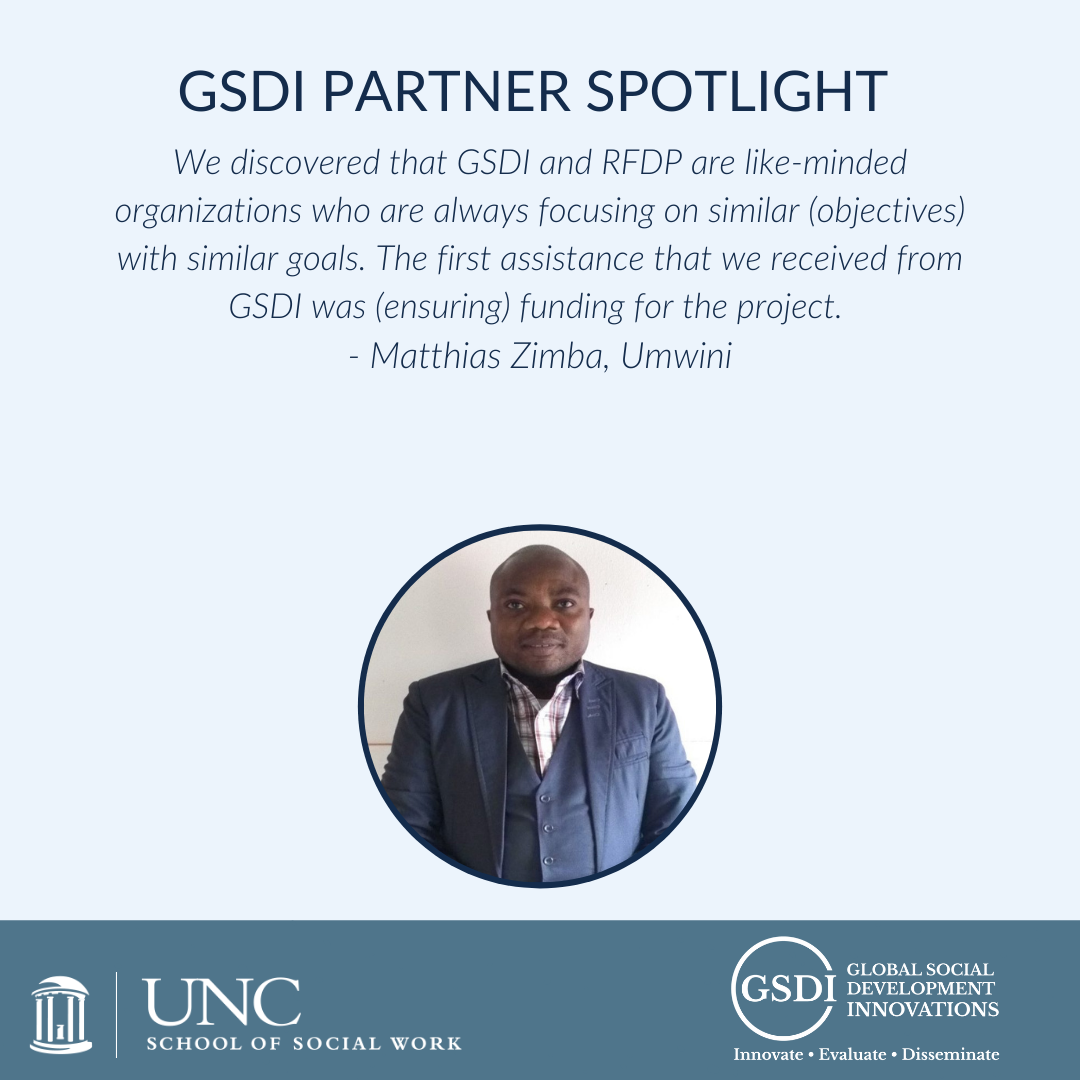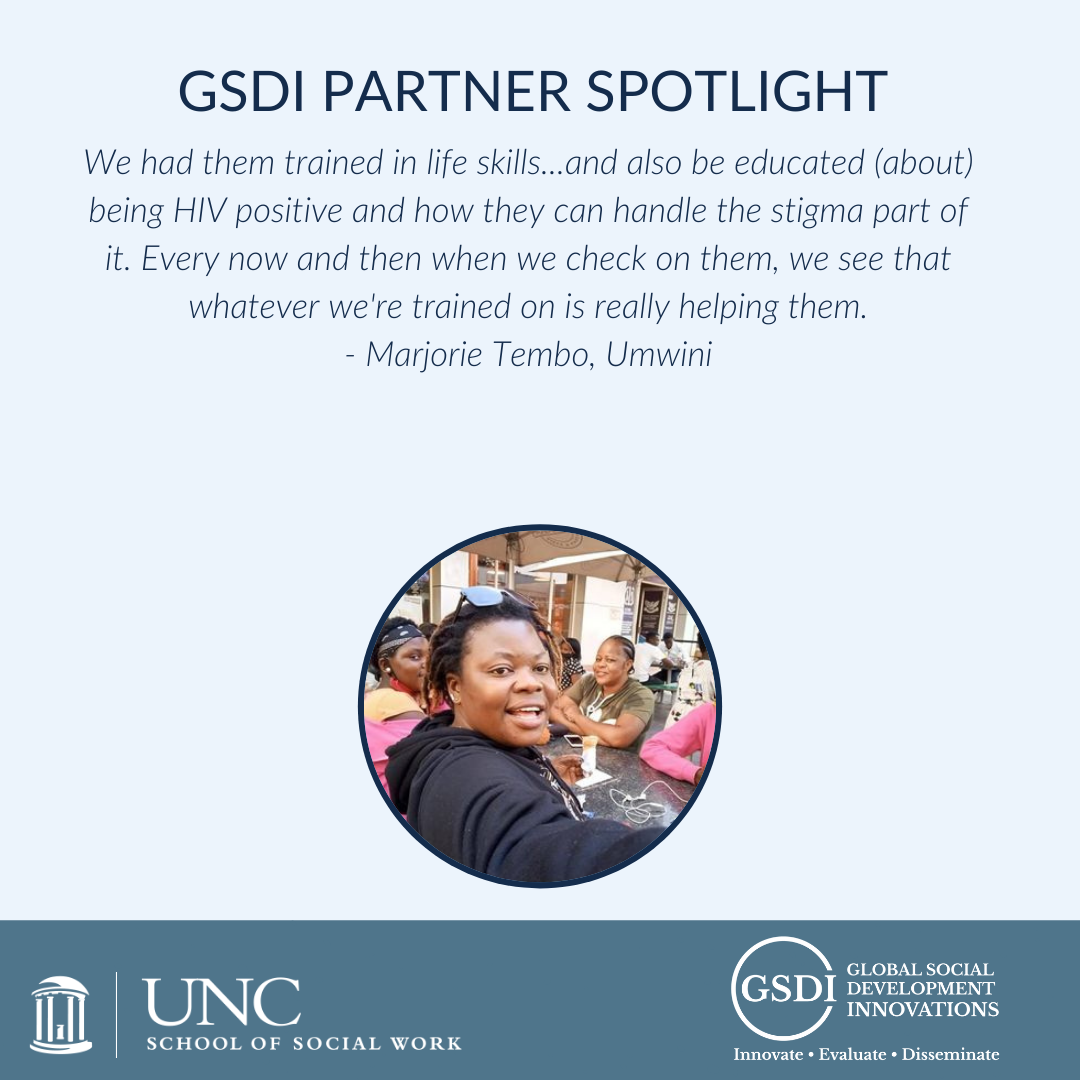GSDI Partner Spotlight Series
 Rising Fountains Development Program
Rising Fountains Development Program
For Marjorie Tembo and Mathias Zimba, common goals drove the partnership between the Rising Fountains Development Program (RFDP) and Global Social Development Innovations in UNC-Chapel Hill’s School of Social Work. Jointly, the two organizations spearheaded Umwini, an intervention program based in Zambia dedicated to instilling socioemotional and financial skills into young people.
Tembo has served as the finance and administration manager for more than 2 years. Since its inception in 2000, Zimba has worked with RFDP and has now ascended to the role of the director. Coupled with the help of GSDI, Zimba and Tembo with played a crucial role in the formation of Umwini and its execution from 2018 to 2019. What solidified the collaboration was recognizing that RFDP and GSDI were like-minded organizations with human-centered missions.
“We are working with women to improve their livelihoods, through economic security and workforce establishment to develop their communities,” Zimba said. “Another thematic area that we are all focusing on is the issue of promoting primary health care, specifically looking at the prevention of HIV and AIDS in Zambia.”
Umwini was created to investigate why young people living with HIV and AIDS were not adhering to treatment, and the potential barriers to such. For young women in Zambia (ages 20-24), HIV prevalence is much higher (12.3%) than that of men (3.6%) in the same age group. Age-disparate relationships and transactional sex that young women are more likely to be involved in further exacerbate this gender gap.
The initiative took place at both Lundazi Hospital (intervention site) and Chipata Central Hospital (control site). Garnering 60 youth participants at each location, Tembo, Zimba, and medical professionals conducted interviews with participants and implemented intervention practices with youth receiving antiretroviral therapy (ART) treatment. What helped them immensely was support from GSDI, specifically technical assistance and leadership provided by Dr. Rainier Masa.
Zimba said, “The first assistance that we received from GSDI was ensuring funding for the project. GSDI developed the tools to use for data collection, like the questionnaires. They also helped us to design and develop the training manuals that were used to train adolescents in financial security.”
Following the implementation, response and attendance were nearly at 100%. Out of the 120 participants, according to surveys, only two at

Chipata did not participate. Not only did Umwini train youth, but it welcomed guardians into the process to offer holistic, familial support to the participants. Temba said that most youth found themselves “entangled in this disease” because they were not financially stable nor was there enough financial support at home.
Tembo said, “We had them trained in life skills so that they could really get a grip about themselves, get the confidence they need, and also be educated about being HIV positive and handling the stigma part of it. We helped them open bank accounts, taught them how to manage their own small businesses, and be financially secure.”
In the year Umwini was active, Tembo and Zimba noticed a stark change in youth participants. Hospital staff saw that they were more social with their peers, realizing that they’re not alone in this diagnosis. Through debunking stigma and social ostracization, Umwini allowed youth to talk about their status openly and the future they want to craft for themselves beyond HIV.
“Every now and then when we check on them, we see that whatever we’re trained on is really helping them. GSDI has really been so eye opening to us and we’ve never done any research projects with any other partner. We’ve learned a lot, and I think they would have learned a lot from us also but it’s always been a pleasure,” Tembo said.
